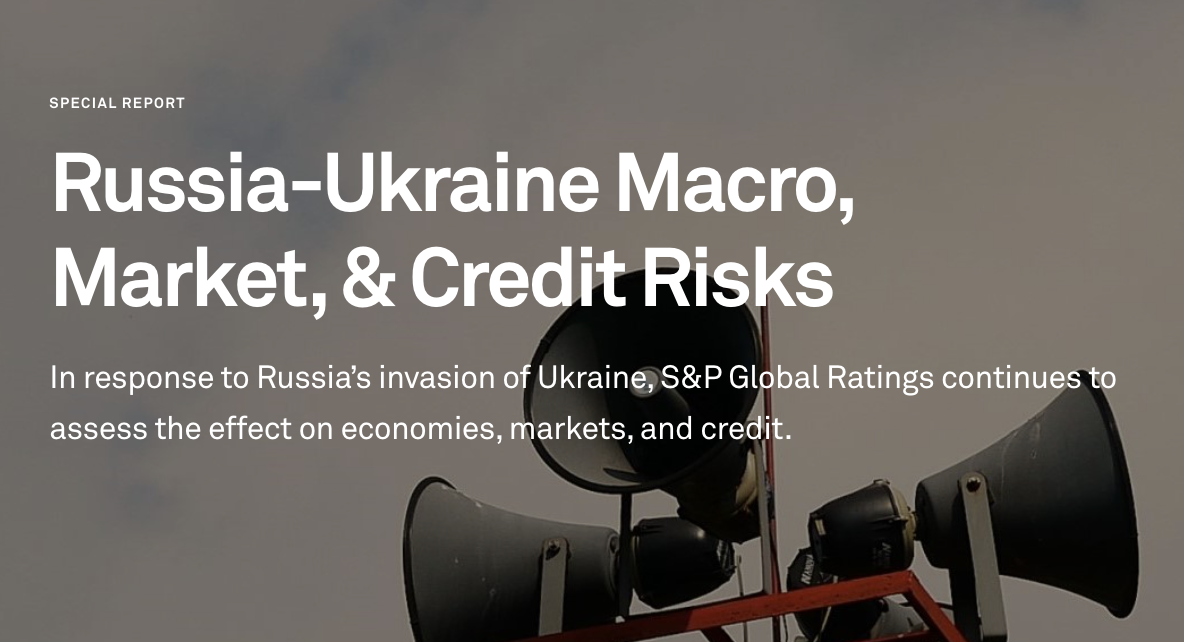Featured Topics
Featured Products
Events
S&P Global Offerings
Featured Topics
Featured Products
Events
S&P Global Offerings
Featured Topics
Featured Products
Events
S&P Global Offerings
Featured Topics
Featured Products
Events
Language
Featured Products
Ratings & Benchmarks
By Topic
Market Insights
About S&P Global
Corporate Responsibility
Culture & Engagement
Featured Products
Ratings & Benchmarks
By Topic
Market Insights
About S&P Global
Corporate Responsibility
Culture & Engagement
S&P Global — 28 Feb, 2022 — Global
By S&P Global
Start every business day with our analyses of the most pressing developments affecting markets today, alongside a curated selection of our latest and most important insights on the global economy.
Russia-Ukraine Macro, Market, & Credit Risks
With the world’s eyes trained on Russia’s invasion of Ukraine, S&P Global Ratings remains engaged in assessing the effects on economies in the region and around the world, financial and energy markets, and borrowing conditions and credit quality. Its collection of publications represents its latest thinking on the topic.
—Access the topic page from S&P Global Ratings
Access more insights on the global economy >
As The U.K. Targets Net Zero By 2050, The S&P U.K. PACT Indices Can Too

The U.K. set goals of reaching net zero targets by 2050; these targets include transitioning to cleaner power and a more sustainable future, securing 440,000 well-paid jobs, and protecting the British consumer from global fossil fuels price spikes. The U.K. equity market certainly has some work to do, given its high weight in carbon-intensive sectors, compared with the rest of Europe and the U.S. Larger weights in highly intensive sectors are reflected in the high weighted average carbon intensity across sectors in the U.K.
—Read the full report from S&P Dow Jones Indices
Access more insights on capital markets >
Ukraine-Russia Conflict Shakes Agriculture Supply Chains, Raises Food Security Concerns
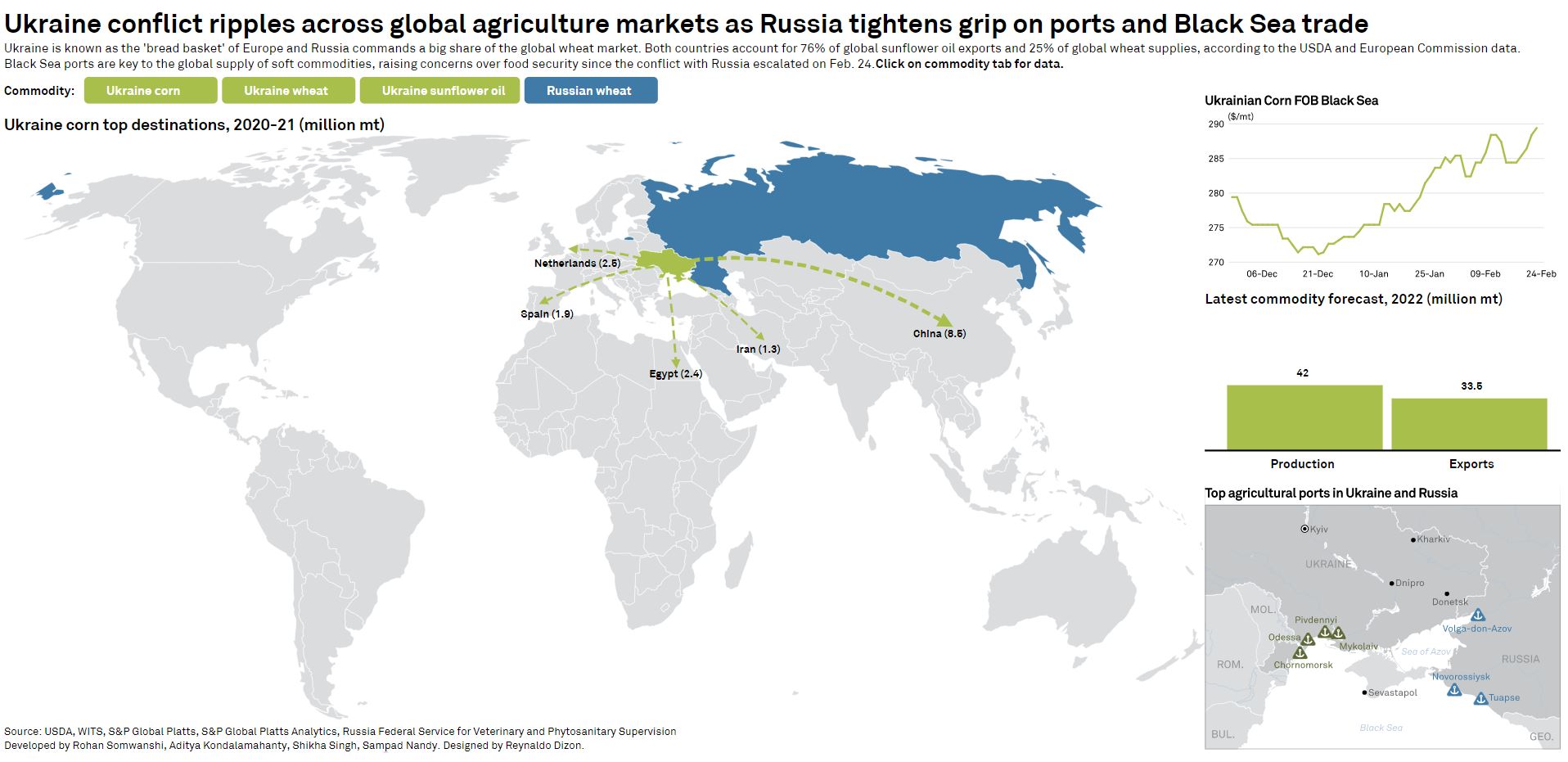
Russia's invasion of Ukraine sent agricultural commodities spiraling Feb. 24 following monthslong tensions in the Black Sea region that kept prices of key grains such as wheat highly volatile. As both Russia and Ukraine command clout in global trade flows of grain and vegetable oil, rising uncertainty in the region around port closures and blockages on vessel navigation are expected to keep prices of commodities such as sunflower oil, corn and wheat elevated in the near term.
—Read the full article from S&P Global Platts
Access more insights on global trade >
ESG In Credit Ratings Newsletter, February 2022
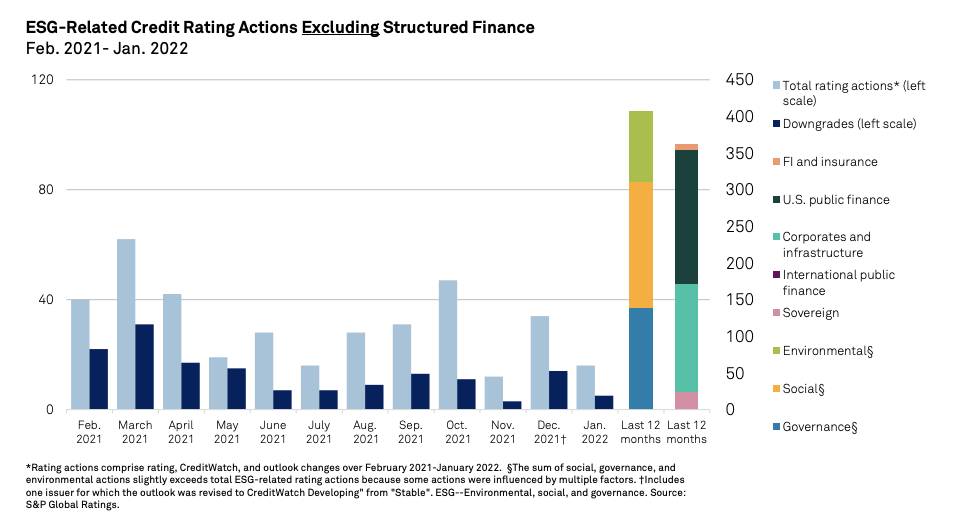
S&P Global Ratings takes a positive view of the European Central Bank's climate risk stress test because it paves the way for banks to better understand and integrate climate risks into their risk-management frameworks. Banks will have to forecast potential losses stemming from climate risks and report how they would amend their business models under various long-term climate change scenarios. The results, due July 2022, will provide insight into where the biggest climate risks lie. Given the assumptions set by the ECB, S&P Global Ratings believes that most banks will report only limited capital impact overall.
—Read the full report from S&P Global Ratings
Russian Invasion of Ukraine Puts Spotlight on Security of Oil, Gas and Commodities Flows
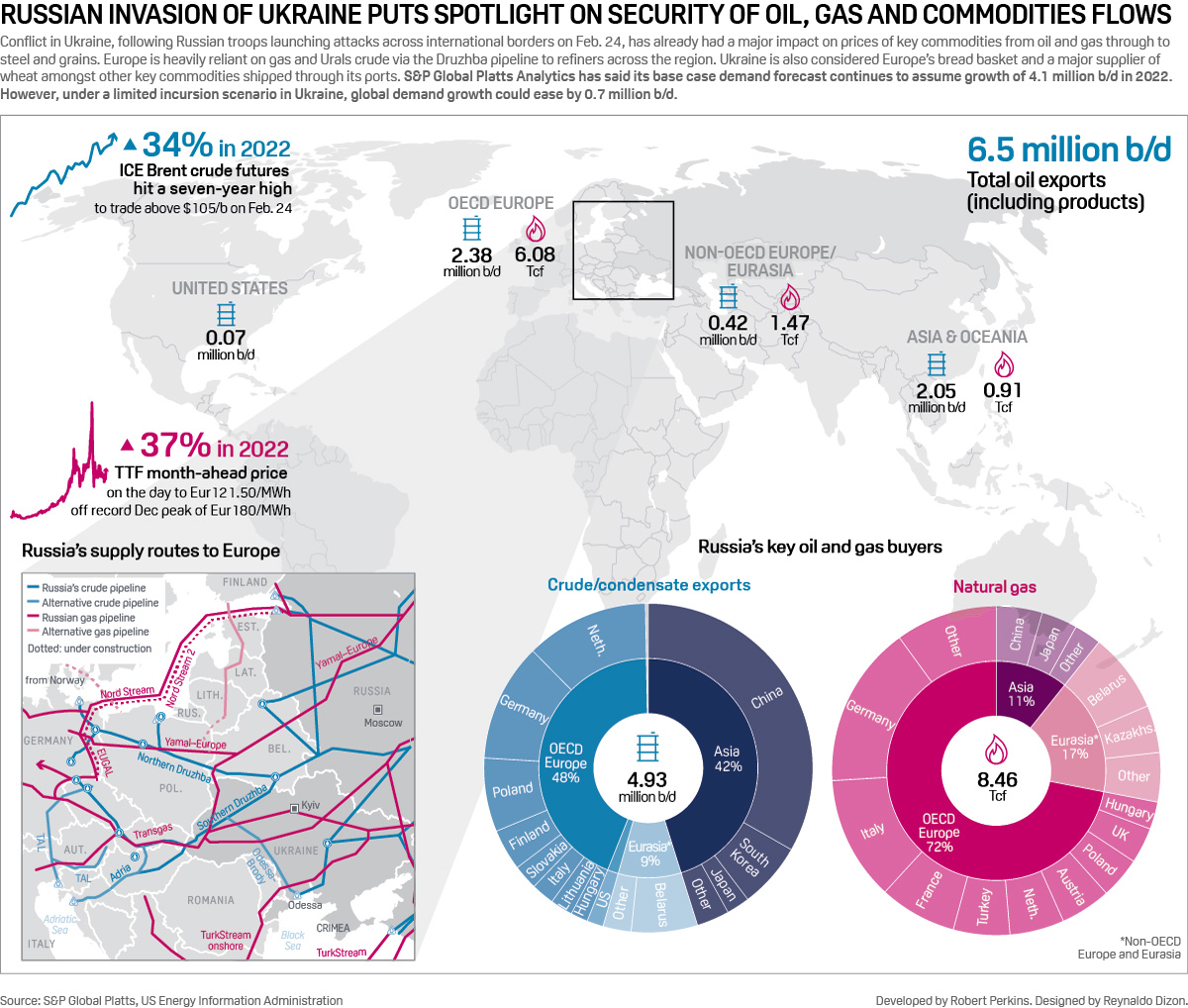
Conflict in Ukraine following Russian troops launching attacks across international borders on Feb. 24, has already had a major impact on prices of key commodities from oil and gas through to steel and grains. Europe is heavily reliant on gas and Urals crude via the Druzhba pipeline to refiners across the region.
—Read the full article from S&P Global Platts
Access more insights on energy and commodities >
Deal Structure Could Raise Regulatory Scrutiny For Standard General's TEGNA Bid
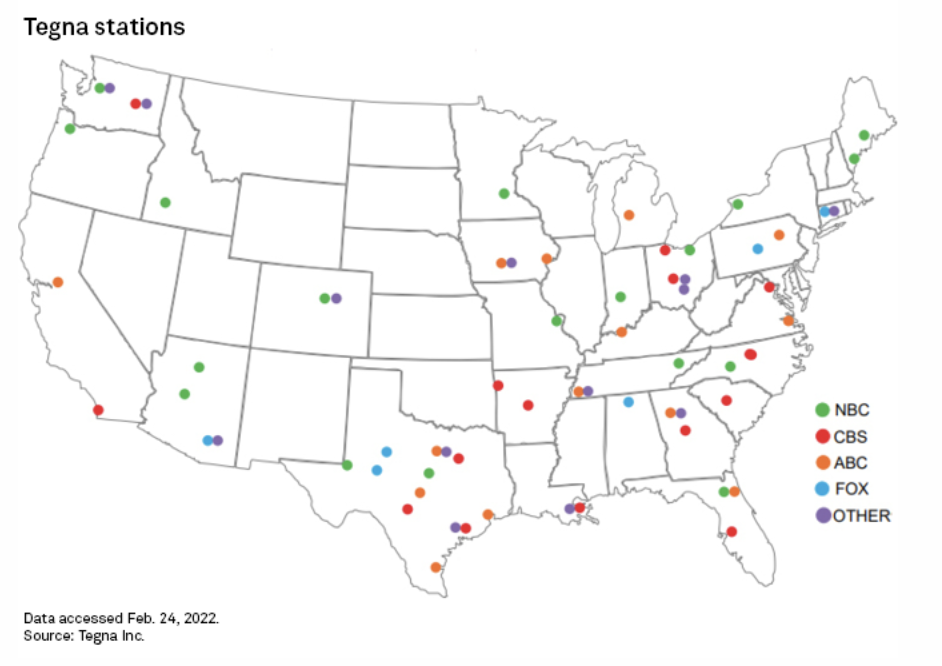
Standard General LP has been after a TEGNA Inc. sale for more than two years, but analysts believe it could take more time, and potentially more money, for the hedge fund to take the broadcaster private. Under the proposed transaction, Standard General will pay $24 per share for TEGNA in an all-cash transaction that carries an equity value of $5.4 billion. Including the assumption of debt, the deal carries an enterprise value of $8.6 billion.
—Read the full article from S&P Global Market Intelligence

